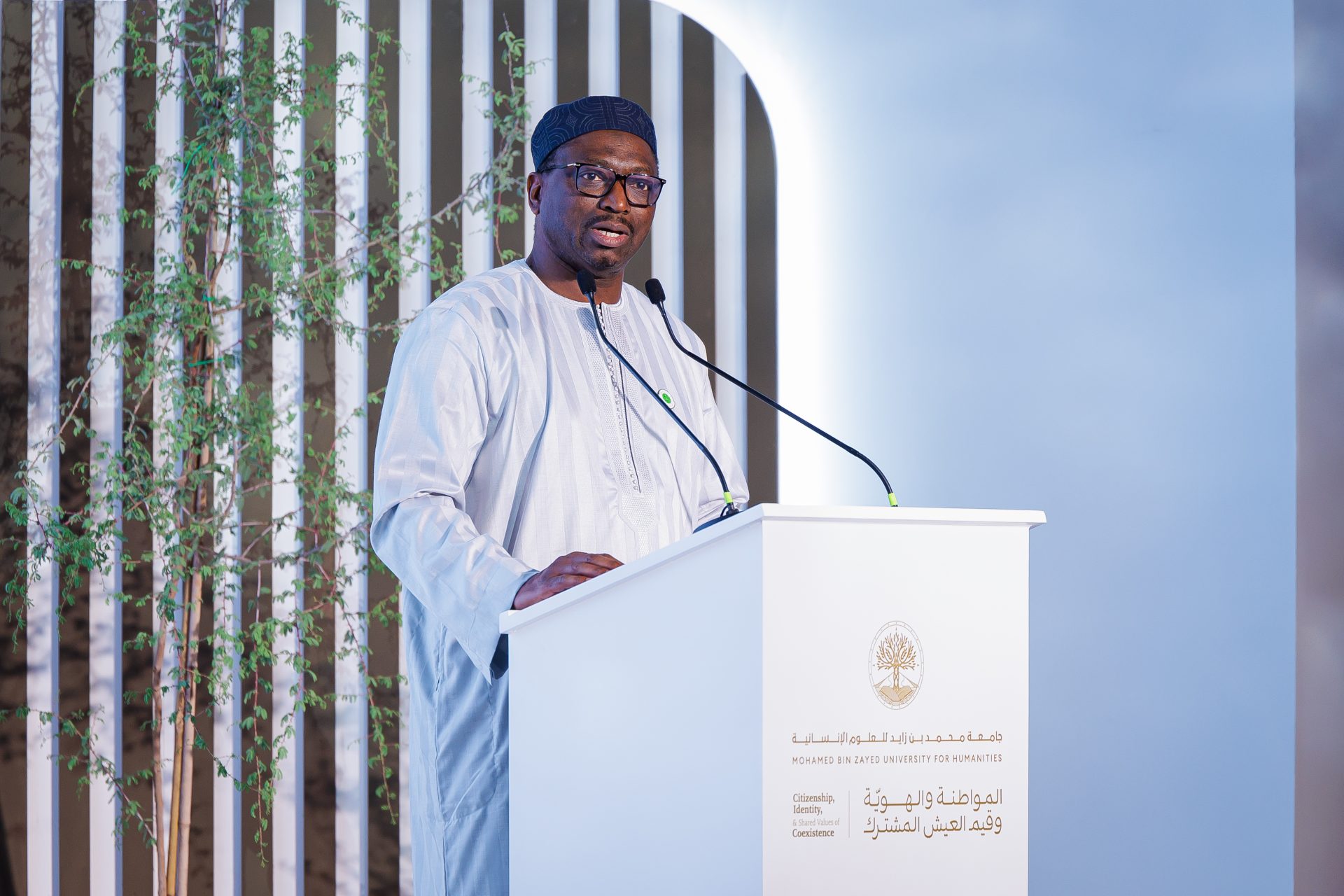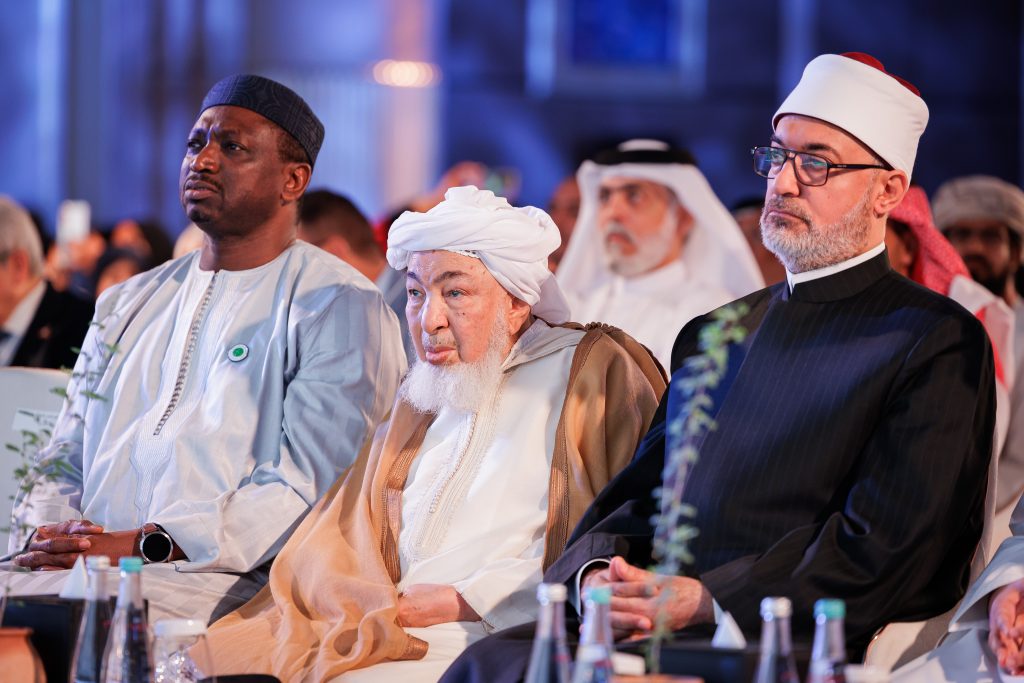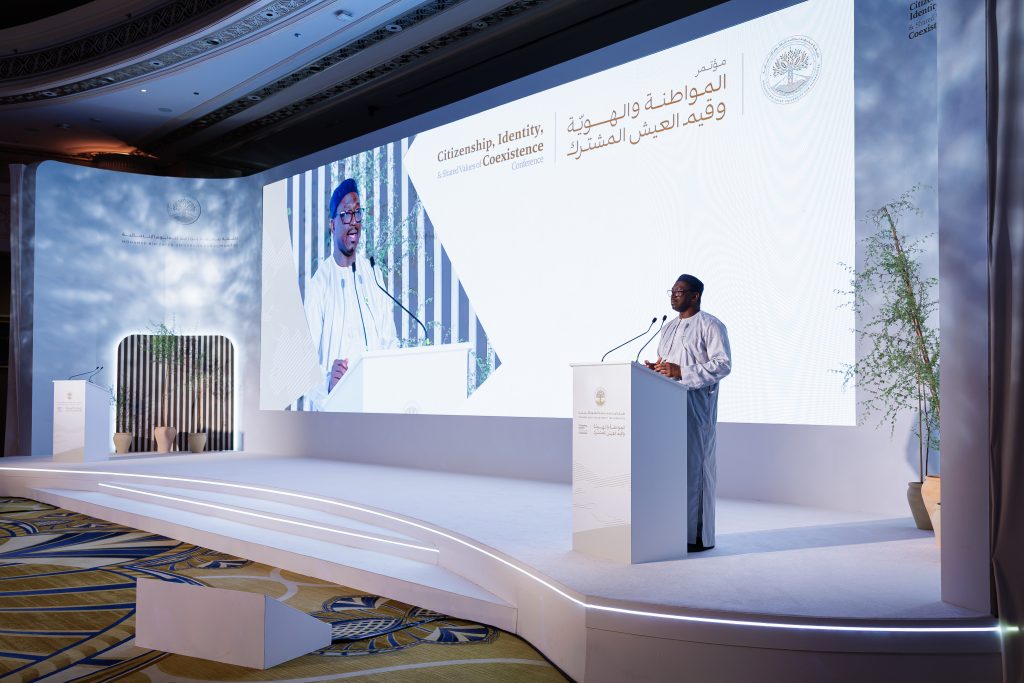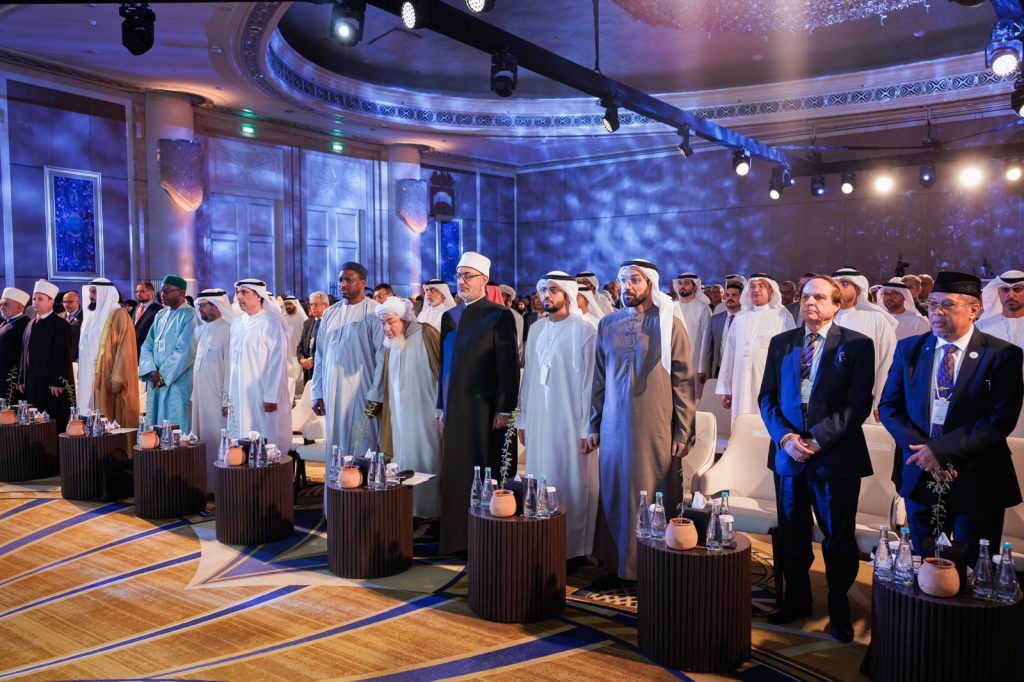
H.E. Prof. Koutoub Moustapha Sano, Secretary General of the International Islamic Fiqh Academy, participated in the Third International Islamic Studies Conference organized by Mohammed bin Zayed University for Human Sciences under the title “Citizenship, Identity and Values of Coexistence” on Tuesday and Wednesday, 17-18 Shawal 1446, corresponding to 15-16 April 2025, in Abu Dhabi, United Arab Emirates.
His Excellency delivered a speech at the opening session, emphasizing the conference’s importance as a platform for “dialogue, deliberation and discussion on ways to promote those firm intellectual principles, rich social pillars and abundant ethical values that advance nations, build civilizations, preserve wealth, safeguard societies and achieve achievements, namely citizenship, identity and values of coexistence.” His Excellency stressed the urgent need in this era of artificial intelligence to “remind emerging generations of the nation’s glorious past, enable them to understand the present full of opportunities and challenges, and sensitize them to a fluctuating future, helping them utilize both our intellectual heritage and modern technologies to responsibly address future challenges and restraints.”
His Excellency then spoke about the concept of citizenship in Islam: “A careful reflection on the concept of citizenship in the light of our rich intellectual and scientific heritage, especially the mature and advanced formulations contained in the immortal document of Madinah, leads us to determine that it is an intellectual, social, and ethical contract between the individual, society, and the state.” His Excellency explained that the fact that citizenship is an intellectual contract is due to the fact that it “derives from solid and solid origins, which are expanded by the texts of the glorious book and the Sunnah of the Prophet Muhammad, as exemplified in all the Sharia texts, which command listening and obedience to the state (= the ruler) in good times and bad, and forbid riots, chaos, disputes, and rebellion”. His Excellency also explained that it is a social contract because it is a contract that organizes “established rights and clear mutual duties between the three parties (the individual, society and the state), which are covered in detail by the texts of the Glorious Book and the authentic Sunnah of the Prophet Muhammad, represented in the texts that call for cooperation, solidarity, compassion and solidarity between the ruler and the ruled on the one hand, between the ruler and society on the other , and between the ruled and society on the other hand…”. Regarding the fact that it is a moral contract, His Excellency explained that this is due to the fact that it is a contract that “…is based on sincere loyalty to Allah, His Messenger, and the State (= the ruler) with heart and soul, sincere affiliation, sincere pride in the homeland, and constant devotion in serving the homeland, society, and the ruler, in accordance with those Sharia texts that call for obedience, sincerity, honesty, loyalty, integrity, sincerity, affection, justice, counsel, and the avoidance of treason, betrayal, injustice, and extremism.”
Regarding Islamic identity, His Excellency defined it as “sincere belonging to homeland, culture, faith, language, and history” – serving as “the basis for intellectual integration through diversity, tolerance and cooperation.”; and he noted this enables “peaceful coexistence with other identities through mutual respect, preventing conflict in the name of religion,” and affirmed that “diversity in beliefs, religions, languages and cultures is among Allah’s signs that only people of knowledge understand.”
Regarding the values of coexistence – tolerance, acceptance, solidarity, and cooperation – His Excellency explained they constitute “the core of sound religions, the essence of divine messages, the guarantee of societal security, and the foundation of stability, prosperity and welfare. These values embody the principles upon which peoples thrive, nations flourish, homelands are built, and human dignity is preserved – particularly tolerance, dialogue, dignity, mercy, justice, equality, respect and acceptance.” His Excellency emphasized that these deeply rooted values “promote peace, concord, security, safety, and harmony within societies while minimizing – even eliminating – conflicts, disputes, strife and unrest. Consequently, the absence of these values has been and remains a primary cause of tension, unrest and crises in societies.” His Excellency noted that “their promotion, consolidation and widespread adoption serves as the foundation for all development, progress and prosperity.”
In conclusion, His Excellency congratulated the conference organizers, characterizing the event as “a qualitative intellectual shift and scientific milestone that we hope will yield, through its discussions and recommendations, strategic visions and practical programs. These should promote awareness – particularly among youth – of the importance of comprehensive citizenship across thought, behavior and practice; preserve the UAE’s distinguished identity with all its rich components; and actively implement valus of coexistence in all development projects to ensure stability, prosperity, peace, security and safety.”
The two-day conference addressed three themes, namely: Citizenship and Belonging: Philosophical Approaches and Value Dimensions; Citizenship in Contemporary Reality; and Citizenship and Future Challenges: Opportunities and Hopes.
Read Also
Lastest











